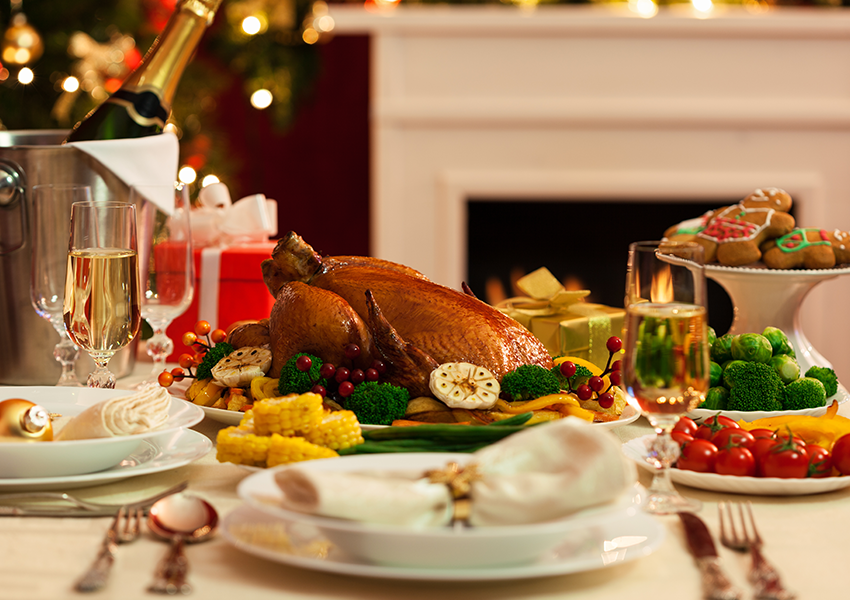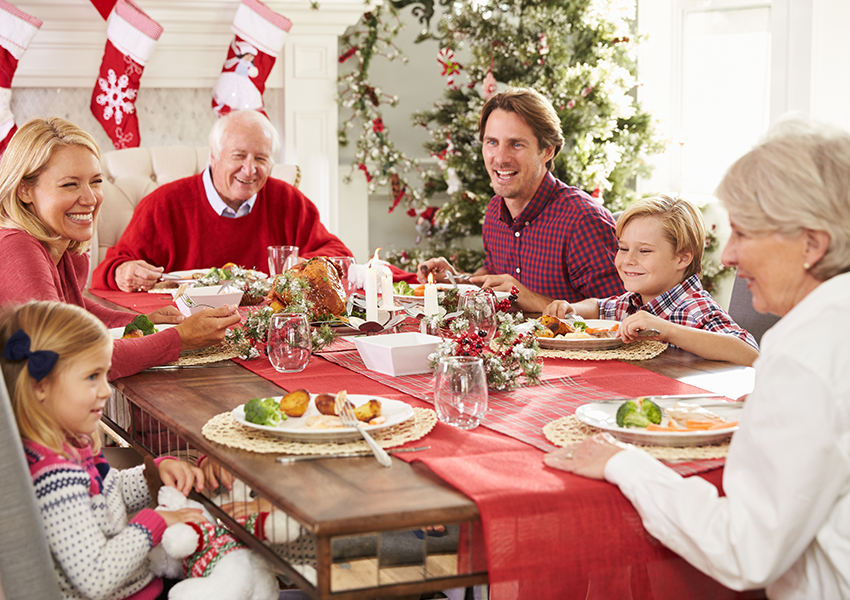To cheer yourself up during the winter months, you might have a tendency to load up your plate. Fondue, pastries, chocolate and other fatty foods start to take over your thoughts when it starts to get cold. Seeking comfort, you automatically start chowing down. See you later, fruits and vegetables! But do you really need to eat more in the winter? Which eating habits should you stop giving in to?
Every year, your appetite seems to grow as fall comes to an end and winter begins. The natural lack of sunlight, shorter days and the blues can actually cause you to eat high-calorie foods and more food in general.

During the winter, eating more seems like a natural, or even biological habit, according to American cardiologist Ira Ockene. In a study published in 2005 in the European Journal of Clinical Nutrition, she says that the amount of food you eat varies by season, just like your weight. The desire to eat more in the winter comes from primitive urges encouraging you to store more calories in order to cope with the cold. In the past, humans weren’t always so well prepared to face low temperatures and had to store fat that they could draw energy from if need be. As a result, this bygone human behavior still has a direct effect on what you put on your plate in the winter. You eat high-calorie food, and more of it, because your instincts are scared you’ll run out of it.
The days getting shorter and a lack of sunlight can have a direct impact on your mood. For example, researchers have determined that these environmental factors can make you experience more or less severe feelings of depression, which they call SAD (Seasonally Affective Disorder). Light actually plays a key role in hormonal regulation. When your hormone levels decrease, this can cause fewer molecules to be created that are good for your mood, such as soothing serotonin. What’s more, the winter blues generally causes a strong craving for sugar or fatty foods, which can briefly improve your mood. It’s been scientifically proven that eating sugar triggers your brain’s reward system and makes you feel happy.
Times have changed and modern comfort means that your need for food isn’t as strong, even in the winter. That’s why your willpower should be able to fight your desire to overeat by finding other things that make you happy.

You really don’t need to eat more in the winter. Nowadays, people aren’t exposed to low temperatures anymore the same way their ancestors were. That means that your physiological needs have changed. Sadly, you’re still used to behaving in a way that’s out of line with modern living.
There’s an alternative to coping with Seasonally Affective Disorder, and it has nothing to do with food. Effective physical activity during the winter can help you overcome a lack of sunlight because it also triggers the secretion of “happiness” hormones such as serotonin and endorphins. FizzUp is well aware of this. That’s why our workout programs are designed to continue on a long-term basis, so that you never stop feeling their benefits. You’ll be calmer and feel better in both your body and mind. Now there’s no need to make up for the winter blues with foods that are high in sugar or calories. Happiness isn’t what you eat… it’s what you do.
Your relationship with food in the winter also depends on your traditions. Celebrations come one after the other during this time of year and usually encourage you to indulge, which also obviously means indulging in food. When you’re aware that your eating habits in the winter are once again influenced by external factors such as traditions, this makes it easier to do something about it. Trust your willpower. Why eat more if you really don’t need to? Know when to let yourself indulge at the right time, for example at Christmas or during the Advent season. In any case, try to not let just a few days turn into several weeks. Instead of doing something good for your body during the winter season, you could be overloading it and hurting your health.
Another trick is to let yourself enjoy a meal without overeating. Teach yourself to know when you’re satisfied. This isn’t something you can do overnight; you have to learn how to detect a feeling of fullness. Recognizing and trying to control this feeling is a great way to ensure that you don’t overeat during holiday meals. Rather than chowing down on appetizers, have one or two that you eat slowly. When it’s time to sit down at the table, you’ll still be hungry enough to eat your meal. There’s no point thinking ahead during the meal about having seconds even before you’ve finished your plate. Appreciate your food with a single helping by chewing slowly.
So, do you still need to eat more in the winter? The answer is “no,” so forget about using the weather as an excuse to stuff yourself. But remember that you can still enjoy yourself during certain festive occasions. These are special times that you share with your family and friends. You’ll appreciate your food even more if you enjoy it in moderation.
Do you think winter has an impact on your eating habits?
Join the 7 million users already registered on FizzUp
Join us